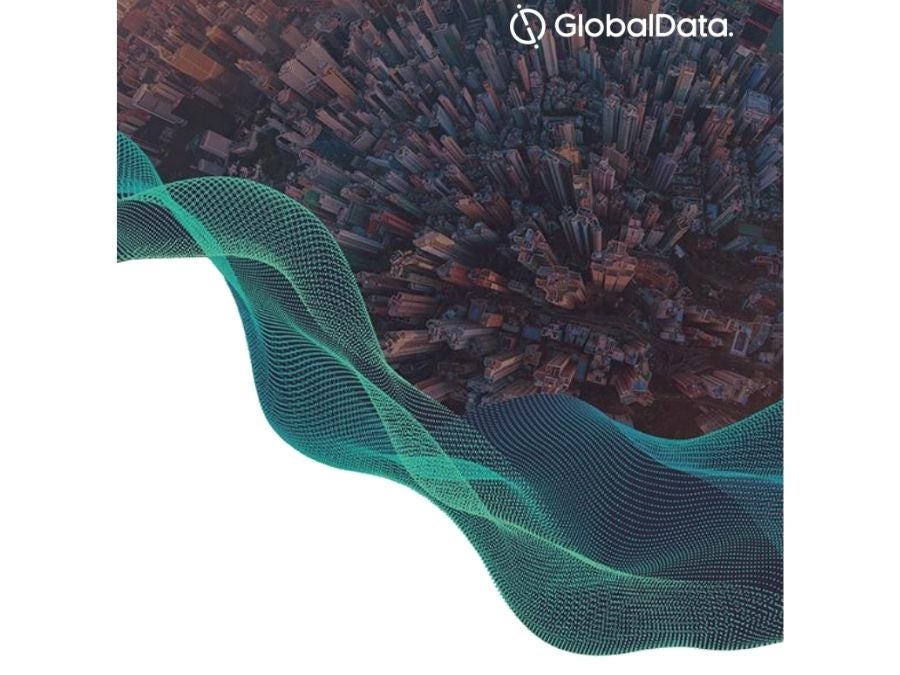
Augmented reality (AR) software is poised to revolutionise the way businesses interact with consumers in the digital sales channel, as well as transform operations by enabling repairs and maintenance to be carried out remotely, according to new research.
The increasingly influential technology is already being adopted by brand owners such as Anheuser-Busch InBev, Heineken, Diageo and PepsiCo, with the global AR market set to grow from US$7bn in 2020 to $152bn in 2030, according to GlobalData’s recently-published ‘Augmented Reality in Consumer Goods’ report. AR refers to software that enables users to view the real world overlaid with digital data, using a smartphone (by far the most commonly used platform for consumers), or AR headsets or smart glasses, which tend to be favoured by businesses.
The growth in the use of AR has been fuelled by the COVID pandemic, which has radically changed the way that both consumers shop and supply chains operate. Both of these factors have made AR solutions a more valuable investment for consumer goods companies, the report points out.
GlobalData highlights the boom in online shopping, with sales from e-tailers rising at a CAGR of 35% between 2019 and 2021, and more than a third of consumers spending more time online, according to the company’s consumer survey undertaken at the end of 2021. “Therefore,” the report says, “solutions that capitalise on the increasingly online nature of shopping are more valuable to consumer companies.”
The pandemic also limited the number of employees willing or able to work on-site in companies’ production facilities, leading to staff shortages and a lack of relevant on-site expertise. In this scenario, AR-enabled remote assistance solutions can facilitate the speedy transmission of technical support to on-site employees. This works by equipping on-site employees with AR-enabled devices – headsets, smart glasses or smartphones – through which off-site technicians can communicate suggested actions both verbally and by overlaying the on-site employee’s device with visual cues.
When this is done, on-site employees are able to carry out complex repair and maintenance tasks without the need for technicians to physically travel to production sites, thereby reducing downtime and improving supply chain competitiveness.
In December 2019, A-B InBev signed an agreement with specialist IT solution provider XMReality to equip three of its zone brewery support sites with XMReality’s ‘Remote Guidance’ solution, allowing off-site experts to provide on-site staff with technical support remotely, rather than having to travel to the site in person. Two years later, A-B InBev extended the agreement throughout its European zone, and rival brewer Heineken is also using the XMReality solution.
The report highlights the potential benefits of such solutions for large corporations – given that A-B InBev operates 200 breweries in 50 countries, and Heineken more than 160 sites. While the advantages of such solutions during a global pandemic may be obvious, the ability to carry out technical support and auditing remotely could also help businesses to make their supply chains more resilient at a time when they are coming under considerable pressure.
“Within the immediate context of the pandemic, this improves the ability of production facilities to operate effectively while reducing on-site personnel, resulting in a working environment that is socially distanced and functional,” the report says. “Once the pandemic is over, remote assistance solutions will still offer an effective way to improve the resilience and cost-efficiency of production sites.
“Administering technical support remotely means technicians and auditors do not need to travel between countries and, sometimes, between continents to do their jobs. Therefore, time, effort and costs are reduced.”
Such smart solutions can also aid brand owners’ sustainability efforts by limiting the amount of travel that relevant employees have to undertake, thus reducing businesses’ carbon footprints.
AR also has many potential uses and benefits on the consumer-facing side of the business, including improved marketing for consumer products both in-store and after purchase. “Product packaging with QR codes leads to AR experiences that can entertain or educate consumers about the product in question,” the report notes. “AR packaging ultimately aims to convince consumers to purchase a brand’s products, whether it be the product wrapped in the AR packaging or those advertised in the AR experience.”
AR online adverts – including the use of AR filters on Social Media platforms – are also an effective way to reach the rising number of consumers who shop online, engaging them with immersive experiences. The addition of AR features to a consumer product, its packaging and its marketing can also make it appear more “digitally smart”, meeting the challenge of digitalisation as such devices and experiences become more deeply integrated into consumers’ everyday lives, GlobalData explains.
In this way, AR can help consumers to understand products more quickly and intimately, with solutions ticking what the report calls “the ‘digitally smart’ box”, as well as satisfying the consumer appetite that has made digitally smart products and services attractive in the first place.
Leaders in the field among beverage companies include PepsiCo, which the report notes advertised two AR-related jobs online in 2019, then ten positions in 2020, and another five in 2021. The company also partnered with 8th Wall on an AR packaging collaboration to host Malaysia’s first AR concert in April 2021, accessed by scanning a bottle of Pepsi Black Raspberry.
Companies as diverse as Diageo, The Coca-Cola Co and Nestlé all deployed AR online adverts in the form of Social Media filters during the pandemic, while A-B InBev has used AR technology for a number of its brands. In 2019, the company’s Devil’s Backbone ale used scannable AR packaging to entertain consumers with fun and educational animations, while a 2020 web-based AR experience developed by Aircards for Michelob Ultra advertised the brand’s beers in an idyllic virtual setting.
Last year, A-B InBev’s Corona brand advertised its achievement of net-zero plastic waste by launching ‘Plastic Reality’, an app that uses AR to visualise a consumer’s personal contribution to plastic pollution.
For more details on GlobalData’s ‘Augmented Reality in Consumer Goods – Thematic Research’ report, click here.


